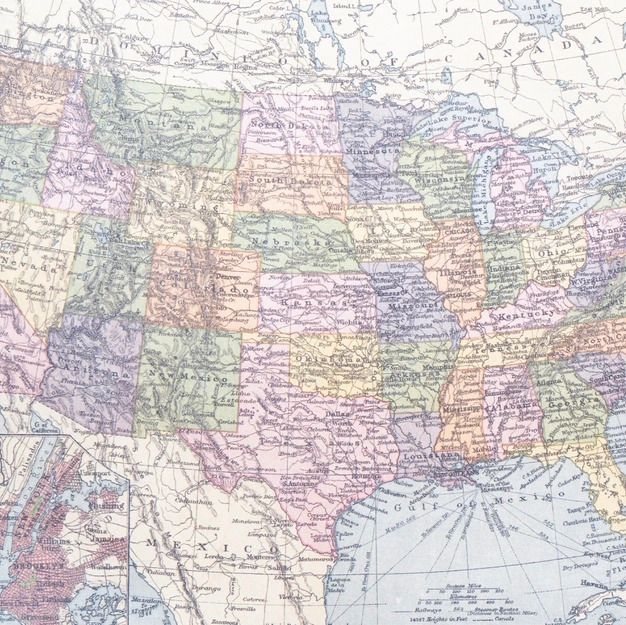
Medicaid Expansion Efforts by the States
Having access to affordable healthcare is critical for staying on top of preventive care measures and addressing unexpected health problems as they arise. However, tens of millions of Americans remain uninsured for healthcare, leaving them vulnerable to expensive medical events. To address this reality, the Affordable Care Act (ACA), introduced in 2010, aimed to expand Medicaid coverage. Unfortunately, this coverage has only gradually rolled out to various states, and many states have refused to embrace Medicaid expansion through the ACA.
Public health professionals and organizations that offer support to underserved populations should recognize every effort to increase healthcare coverage to the most vulnerable populations in America. Here’s what you need to know about the Medicaid expansion efforts by the states, which states have fallen behind, and why participating in the expansion is generally beneficial.
What Is Medicaid Expansion?
The provision of the ACA that addresses Medicaid expansion expands coverage to almost every adult with an income of up to 138% of the Federal Poverty Level. For a single individual in 2023, this means an income of $20,120 annually. This expansion captures large swathes of the population that would otherwise not have access to affordable health insurance. The expansion plan also gave states a higher federal matching rate to provide for these new populations included in the program.
Which States Have Not Adopted Medicaid Expansion?
To date, 10 states have not embraced Medicaid expansion—with North Carolina being the latest state to pass legislation to expand coverage and remove itself from the “non-adopting” list.
The following states have not adopted Medicaid expansion:
- Florida
- Georgia
- Kansas
- Mississippi
- South Carolina
- Wisconsin
- Wyoming
- Texas
- Alabama
- Tennessee
What Sort of Lobbying and Advocating Is Occurring to Encourage Medicaid Expansion?
Efforts by healthcare advocates to encourage states to embrace Medicaid expansion have been successful, with the very recent decision by the state of North Carolina to join the ranks of those expanding Medicaid coverage. Other such efforts are taking place in states that have yet to expand coverage. For example, the Governor of Kansas, Laura Kelly, has included Medicaid expansion in her budget proposal for the 2023 Fiscal Year.
Why Is Participating in Medicaid Expansion Beneficial to States?
When states participate in Medicaid expansion, they can help cover more of their citizens. This can help reduce healthcare disparities within their state and ensure their citizens have better and more attainable healthcare coverage. The federal government has offered an extra fiscal incentive to states that expand their Medicaid coverage, providing 90% of the cost of care for the individuals who become eligible under the expansion. This incentive means that states can insure more of their citizens while not shouldering the full cost of doing so via their state budgets.
How Can Medicaid Expansion Benefit Americans?
Research on the positive effects of Medicaid expansion in states that have embraced the coverage shows that Medicaid expansion has had the following positive effects:
- A 3.6% in all-cause mortality
- Increased insurance coverage for cancer patients and survivors
- Improved cancer mortality for certain types of cancer
- Expanded cancer screenings
- Increased coverage of individuals living with diabetes and other chronic diseases, as well as screening for these chronic diseases
- Declines in maternal and infant mortality and increased usage of prenatal healthcare services by pregnant women
Additional research has highlighted how Medicaid expansion has decreased racial disparities in healthcare coverage.
How to Learn More About Medicaid Expansion Efforts by the States
Medicaid expansion efforts by states have increased healthcare coverage to millions of Americans living at or below 138% of the Federal Poverty Line. While this is certainly a step in a positive direction for improving healthcare outcomes in the United States, 10 states that have not embraced the expansion yet. To learn more about this ongoing public health concern, check out this interactive map from the Kaiser Family Foundation.
Research and materials for this article were compiled, written, and distributed on behalf of the National Public Health Information Coalition. The views and opinions expressed in this blog are those of the various authors and do not necessarily reflect the official policy or position of the National Public Health Information Coalition or its members.
Sources
[1] Key Facts about the Uninsured Population. https://www.kff.org/uninsured/issue-brief/key-facts-about-the-uninsured-population/
[2] Affordable Care Act (ACA). https://www.healthcare.gov/glossary/affordable-care-act/
[3] Poverty Guidelines. https://aspe.hhs.gov/topics/poverty-economic-mobility/poverty-guidelines
[4] North Carolina set to become 40th state to expand Medicaid after yearslong battle in GOP-led statehouse. https://www.cnn.com/2023/03/23/politics/north-carolina-medicaid-expansion/index.html
[5] New Incentive for States to Adopt the ACA Medicaid Expansion: Implications for State Spending
[6] Building on the Evidence Base: Studies on the Effects of Medicaid Expansion, February 2020 to March 2021. https://www.kff.org/report-section/building-on-the-evidence-base-studies-on-the-effects-of-medicaid-expansion-february-2020-to-march-2021-report/#Mortality
[7] Effects of the ACA Medicaid Expansion on Racial Disparities in Health and Health Care. https://www.kff.org/medicaid/issue-brief/effects-of-the-aca-medicaid-expansion-on-racial-disparities-in-health-and-health-care/

